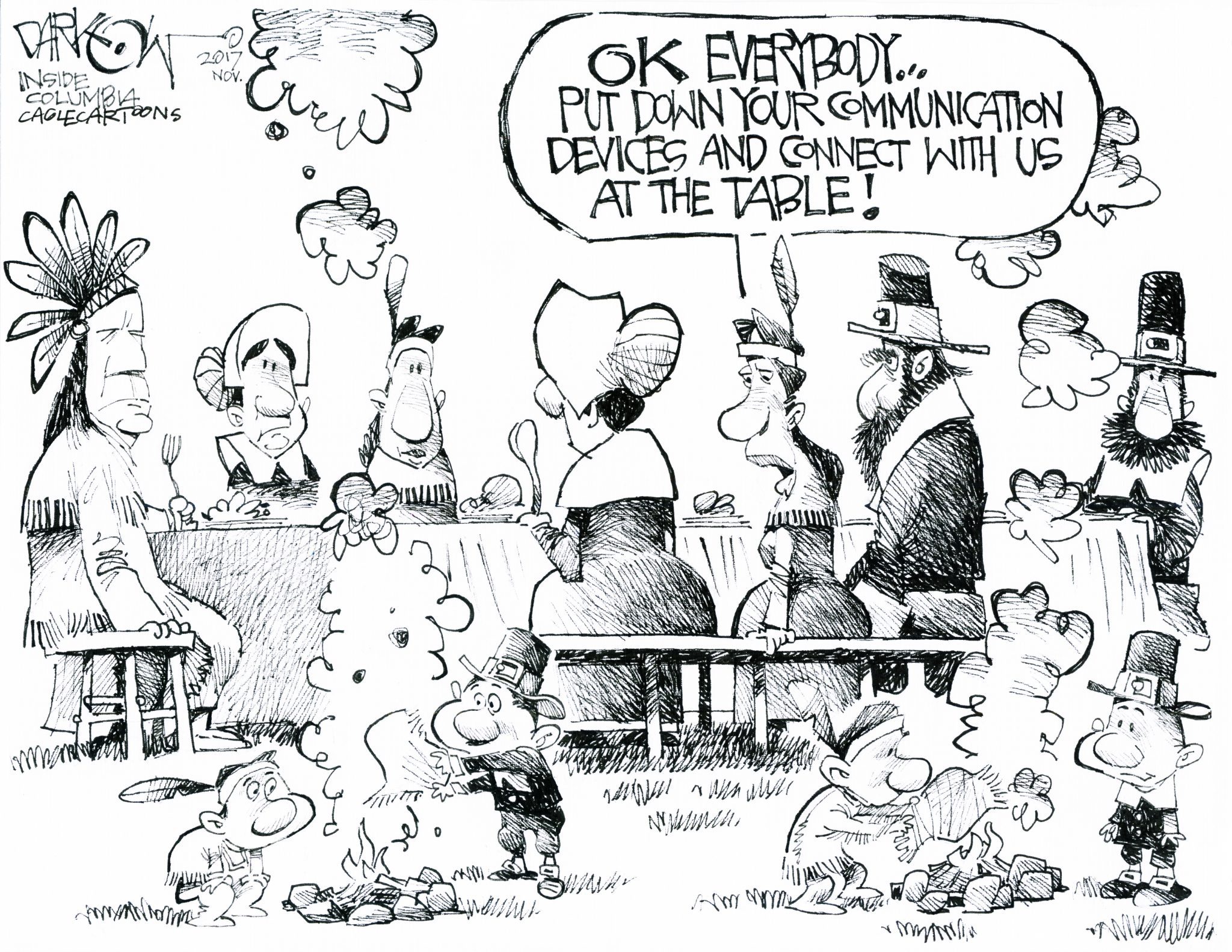BY SHARON MARTIN
 There is nothing quite so human as the sharing of food. My mother fed people. My dad brought them home for her to feed. Sometimes he was the cook. My siblings and I learned the joy of sharing by their example.
There is nothing quite so human as the sharing of food. My mother fed people. My dad brought them home for her to feed. Sometimes he was the cook. My siblings and I learned the joy of sharing by their example.
As I write this, it is two days until Thanksgiving, and I think about this as I get the chicken out of the freezer to thaw. I am grateful for the chicken.
My friend, Diane, and I planned the holiday meal. We included something to please everyone: roasted chicken, dressing with gravy, mashed potatoes for the gluten-free folk, asparagus, black olives, cranberry sauce, and my crustless pumpkin pie.
The chicken, potatoes, and pumpkin are local. Some of it comes from my own back yard. Wheat and corn in the dressing are grown and ground in Oklahoma. The celery, black olives, cranberries, and spices come from afar.
Where does your food come from?
Could you feed yourself passably well if the transportation system broke down? If there were an extended drought not unlike the one we are experiencing right now? If war demanded that the food supply be diverted to troops?
The climate is changing. We must adapt to survive. As we adapt, we must share not only our food but also our knowledge, lessons that could help the offspring of our offspring feed their families as the planet warms, as the population surges.
Animals that do not adapt to changing conditions go extinct. It could happen to us. I think about this because I have 319 Neanderthal DNA variants. The Neanderthal are extinct except for traces of their DNA left in people like me.
As you share your food this Thanksgiving, I hope you’ll think about adaptability. How can you keep traditions alive as the world changes?
Do you need hope that this can be so?
According to scientists at the University of Utah, an ancient variety of potato has been growing in Escalante Valley since unknown travelers, possibly from the Andes, brought them to the region 10,000 years ago.
Think about the potatoes on your Thanksgiving plate. What do you know about them? Where were they grown? What variety are they? What is required to grow them?
Think about cranberries. And olives. With what would you replace them if you couldn’t buy them at the store?
Would you share your food if food were in short supply?
This Thanksgiving, I hope you’ll share as a way of giving thanks. I hope you’ll pass along knowledge with the food that you prepare.
– Sharon Martin lives in Oilton, OK and is a regular contributor to The Oklahoma Observer. Her children’s book, Froggy Bottom Blues, can be purchased in hardcover or paperback from Doodle and Peck Publishing. It also is available in paperback from Amazon.








